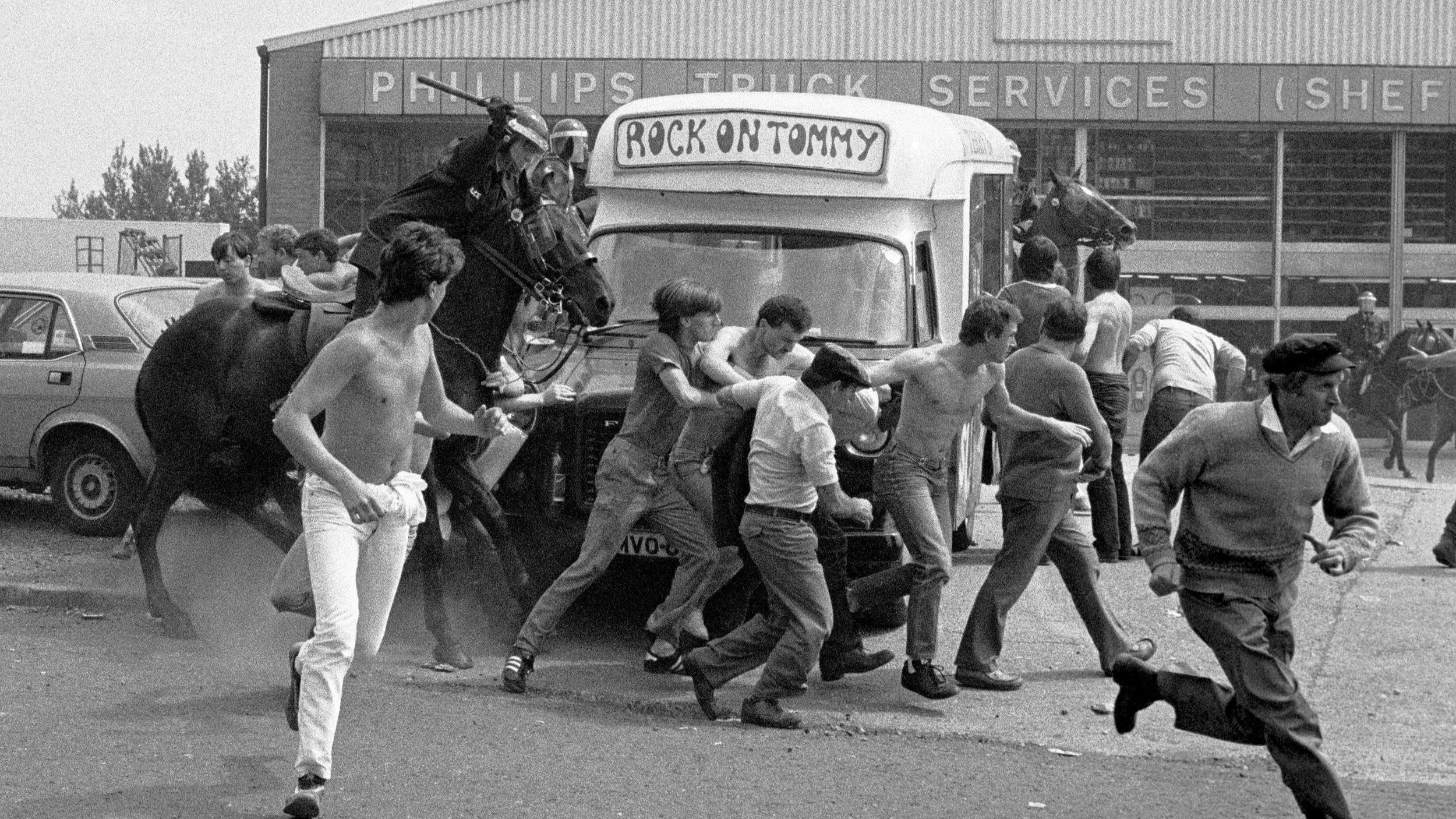Strike: An Uncivil War
Forty years on, Daniel Gordon’s documentary about the UK miners’ strike of 1984 is a timely work.
Image courtesy of Tull Stories
This new release arrives just days after winning the Audience Award at the Sheffield DocFest. Such a success is not always proof of quality because some films, not least ones with a strong political stance, can obtain a positive response simply because the viewers who choose to see them do so because they are already drawn to the view being expressed. Happily for filmmaker Daniel Gordon no such doubts exist in the case of Strike: An Uncivil War. This is a documentary of high quality that expertly blends considerable archive footage with new interviews and tackles a subject which, while long a political sore point, has an importance which transcends party politics.
At the heart of Gordon's film is what happened on 18th June 1984 at what has become known as the Battle of Orgreave, that being the brutal occasion when police violently confronted protesters supportive of the Miners’ Strike. Around 6000 police turned out to deter those who were seeking to prevent the departure of lorries stacked with coke for the steelworks at Scunthorpe. Sensibly Gordon chooses to put all this in context. That is to say that his film does not hesitate to cover earlier relevant events (not least the impact on the thinking of the Conservative government consequent on successful strikes from which they had suffered in 1972 and 1974) and to consider in its last scenes the impact of subsequent pit closures on mining villages after the strike of 1984/85 opposing those closures had failed.
The fact that this film is appearing forty years on from the events depicted was doubtless a trigger for making it and it carries the advantage that it can still call on many miners able to speak direct to camera about their involvement and also about the impact that their participation in what proved to be a fruitless endeavour has had on their subsequent lives. In the case of one such man they were just in time to do this since the end credits reveal that Tyrone O'Sullivan died in 2023. We hear too from others who played a part in other ways be it as lawyers called in, journalists who reported it, supporters of the strike or, indeed, police officers. Nevertheless, it is the miners themselves who make the greatest impact and it is touching and sad to see how on looking back some of them can still be overwhelmed by emotion all these years later.
But if this film is strong on human appeal its importance lies elsewhere. Thanks to documents now uncovered and to revealing video footage taken at the time, Strike is able to set up a convincing case showing the degree of underhand manipulation through the government’s role in dictating how far the police could go. The cover-up, whether or not it encouraged biased news reports, was at its most overt in the pressure imposed to ensure that police witness statements should incorporate dictated paragraphs. Seen today what was going on then is a forceful reminder of how the Post Office scandal with its illustration of how powerful institutions are prepared to protect themselves at the expense of fair treatment for individuals is not without precedent in this country. The trial of those arrested at Orgreave underlines the parallel given how the charge was upped in many cases from ‘unlawful assembly’ to ‘riot’ (thus making a life sentence a possible penalty) and how the prosecution’s case collapsed after the tampering over the witness statements was revealed.
If this documentary has a weakness it lies in its length, only a little short of two hours. It certainly delivers its narrative with great clarity and it could be argued that as a historical document every minute of it is justified. At the same time the general viewer may well feel that it is on the long side. That reaction is all the more likely when a written statement about a party celebrating the end of the strike given by the Home Office for senior police officers and civil servants seems to provide a neat conclusion for the film after which it opts to continue by adding a coda. This final section is not without value, but there is still a sense that in being so exhaustive the film is almost in danger of becoming exhausting. Yet, even if a little editing out here and there would be beneficial, that's a small point and, having gone on beyond one potentially apt ending the film does find another one: the last statement in it points out that in 2016 the Conservative government ruled out any enquiry into what was done at Orgreave. Gordon can be certain that his film has found the right note to ensure that most viewers will see this ruling as an injustice that ought now to be remedied.
MANSEL STIMPSON
Featuring Ian Mitchell, Don Keating, Jackie Keating, Tyrone O’Sullivan, Stephen Whyles, Beau Liddle, Matt Foot, Morag Livingstone, Nick Jones, Gareth Peirce, Liz French, Ed Rees, Robert White.
Dir Daniel Gordon, Pro Daniel Gordon, Fjolla Iberhysaj and Nick Taussig, Ph Michael Timney, Ed Kevin Konak, Music Tim Atack.
A Very Much So & Embankment Production/Meadowlark/Davy Films/BFI Doc Society Fund/Tull Stories/Rainmaker Content-Tull Stories.
111 mins. UK. 2024. UK Rel: 21 June 2024. Cert. 15.


